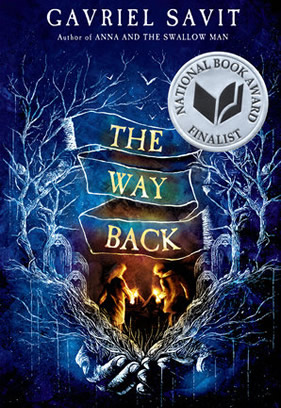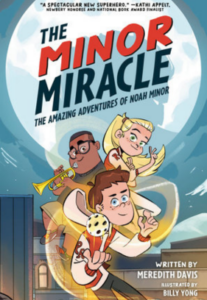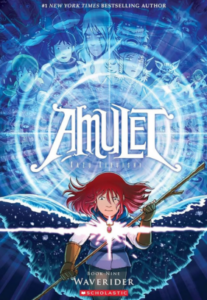A stranger is coming to town, and Yehuda Leib is told by his frightened mother he must flee. Not really knowing why, Yehuda Leib leaves Tubisk that very night. However, as circumstances would have it, Yehuda Leib runs into the stranger who tries to capture him. With the help of a friend, Yehuda Leib escapes. But a stranger is accidentally killed in the escape, a man who turns out to be his long-lost father.
When Death comes to take his father’s soul, Yehuda Leib decides he will take it back. It is not fair that at the very moment he met his father; he lost his father. So, he follows the crow that carries the spark of his father to a Far Country, the home of the dead and demons.
Meanwhile, Bluma knows everything about her Bubbe, who lives in the attic above Bluma’s bedroom. The girl is familiar with every step, shuffle or creak that the old woman makes. So, when the Angel of Death enters the room, Bluma knows. And when Death accidentally drops its soul scooping instrument, Bluma finds it—a spoon. Not an ordinary spoon, like one you eat with. But a spoon that eats.
Bluma is both intrigued by the spoon and afraid of it. When she tries to get rid of the spoon by throwing it away and even burying it, it returns to her pocket. It will not leave her even as she runs into a cemetery and passes from the land of the living into the land of the dead. Here, in the Far Country, Bluma meets Lilith, who teaches Bluma how to use the spoon. Bluma hides from the demons by letting the spoon swallow her face and then her name.
Speaking of demons, they’re all trying to get to Zubinsk for the wedding of the holy Rebbe’s granddaughter. An open invitation to anyone and everyone allows demons to enter the human world. Even the Angel of Death is there, looking for a reprieve from the toil and ungrateful attitudes of those who have passed.
Eventually, everyone finds their way to Zubinsk. When the Angel of Death and Yehuda Leib go to the holy Rebbe for help, their interaction accidentally kills the holy Rebbe. Angry over his lost opportunities, Yehuda Leib decides he will kill Death. Bluma joins Yehuda Leib to either to get her name and face back from the spoon (and Death), or to give the rest of her soul away.
A fight with the powerful Angel of Death requires gathering of demonic armies. Yehuda Leib and Bluma travel through grim parts of the Far Country, making deals with several powerful demons so that they can attack Death together.
When they finally face Death, the being explains how it (the angel’s gender appearance shifts depending on who it’s interacting with; the angel is an old man with Yehuda Leib and an old woman with Bluma) is there to usher souls to the eternal light. The Angel od Death is always “sent” when the time is right for the soul to come home.
Yehuda Leib and Bluma realize that they want their loved ones to go into that eternal realm after all. While they will miss their family members, death does come to everyone and is part of life. In fact, it is essential to appreciate life. So they relent and decide to not kill the Angel of Death. However, they are still in the land of the dead and must figure a way out. Together, they carefully walk backwards, leaving the Far Country. And in the end, they find they will continue to travel together until it is their time to meet Death again, but this time as a friend.bbbb











